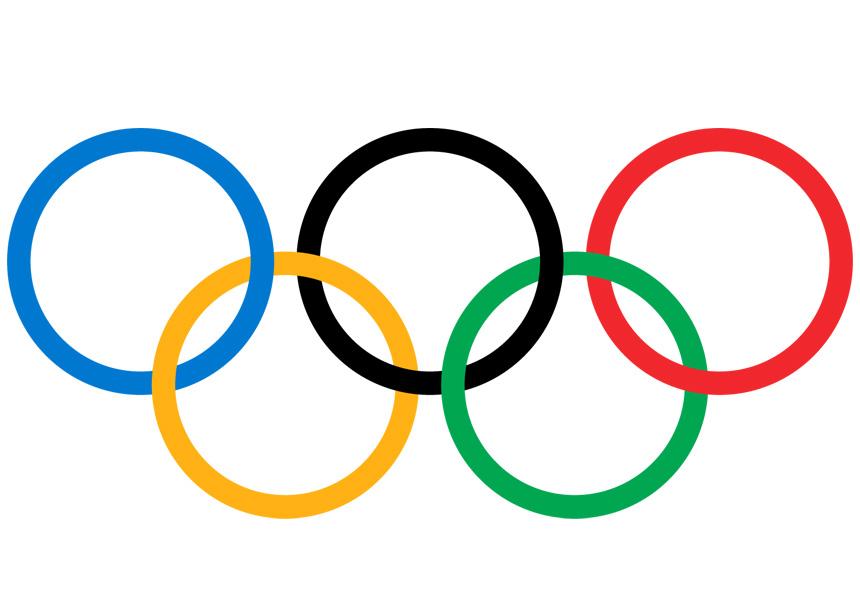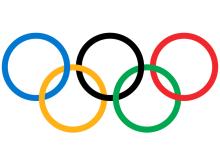I like watching the Olympics, but I see only overblown virtuism and commercialized pretense in the notion that the games bring together the global village in a glow of equality and peace that will somehow contribute to the betterment of humanity.
Equally vacuous is the tiresome repetition of the view that if you believe in your dream, attend enough early morning practices and make the requisite sacrifices, every backyard childhood dream of glory will come true.
I’ve always loved watching and playing sports. I love motion, drama, competition and the testing of character. I don’t love it when sport neutralizes people’s moral compass.
When I watch the Olympics I see elitism in the guise of equality, naked commercialization, irrational nationalism and some really entertaining ping pong.
At the risk of ruining your Olympic experience, here’s my four-part, fourth-place Olympic take-down.
1. Inequality
Yes, 206 nations have national Olympic committees with proud athletes who are surely happy for new track outfits and two weeks in Paris, but I have often wondered what it is like to watch the Olympics if you are from one of the countries that wins nothing, like Lesotho or Haiti. While just being there is a good ideal—think Eddie the Eagle or the Jamaican bobsled team—the glory of gold is what it’s about. The point of sport is to win.
And my point is that the distribution of victory is exceptionally unequal. As of the morning of July 5 when I crunched numbers, 87.5 percent of the gold medals had gone to the U.S., Canada, Australia, New Zealand, China, Japan, South Korea and European countries.
Only five of the 20 most populous nations on earth had struck gold, with an asterisk for Russia which is currently busy with other matters. The most populous nation on earth, India, had three bronze medals (in rifle and air pistol events). Then come China and the U.S., who lead the medal race. Then Indonesia, with a single bronze (women’s singles badminton).
Africa’s most populous nation, Nigeria, had no medals. Africa overall, had won three of the 168 gold medals handed out. That’s 1.8 percent of golds for 18.5 percent of the global population.
The winter Olympics are even more lopsided. Two continents were entirely shut out of the medals at the last winter games. Only 14 percent of Olympic nations medaled.
To the extent that the Olympics gather the nations, they gather them largely to watch a few nations of means parade their athletic privilege.
Am I the only one sick of watching the Americans win?
2. Commercial frenzy
It would be easier to argue that the Olympics bring together prospective consumers and offer this audience to eager advertisers than to suggest the meaningful advancement of human wellbeing and unity are at play. Advertisers love the combo of sport, global good vibes, raw patriotism and the improbable Olympic dream.
3. Tribalism
While the opening and closing ceremonies present a spectacle of global connectedness, sport itself is particularly tribalistic. I watch Canadian commentators focus disproportionately on Canadian athletes (which means I don’t get to see as much ping pong as I would like). And for some reason I am supposed to be proud or happy or in the mood to purchase things when “we” win a medal in fencing, trampoline or the hammer throw.
But what exactly should it mean to me that someone I have never heard of, but who lives within the same nation state, can throw a hammer further than other people I have never heard of from other corners of the global village?
Why exactly do I want a Canadian to beat the person from Botswana or Uzbekistan or Guatemala?
Am I supposed to be thrilled that people from smaller, poorer nations are defeated and dejected?
We do not rise above national identities at the Olympics, we sink into them.
I learn nothing meaningful about other countries. The cross-cultural exposure could hardly be more superficial or the veneer of equality thinner or the dynamics of privilege more glossed over. And no, a few stories of people “overcoming all odds” do not change the overall reality.
4. The elite dream
But the dream lives on, as they say. Both advertisers and athletes never tire of leaning on the lie that anyone can rise to the top if they just dream big enough, never give up and make sacrifices.
Of course, the Olympic dream is essentially the American dream, and it is a dream that only makes sense to the winners. If they can win, surely others (everyone?) can. Except that winning, by its very nature, requires losers.
For every gold medal winner, thousands of others also dreamed and believed and sacrificed. But only one person wins, unless you count as winners the people who dreamed their whole lives of finishing fourth or seventh in the first heat or just missing the Olympic team.
And what exactly are the sacrifices we laud? Time with family, time in one's community or country, in some cases, a balanced life.
I don’t teach my kids to sacrifice those things (though, admittedly, soccer has got in the way of time with grandparents).
Should it be the goal of masses of young children in the Global South to excel at something of no real consequence, likely leaving their community and country, perhaps attending college in the U.S. to improve their chances, and assimilating to some extent into western culture? And then return to their country as a so-called role model to tell other kids who most certainly cannot do the same thing that they can? Is that the Olympic dream?
I’m overplaying the point. The official Paris 2024 website says, “Live the Olympic Dream with our Paris 2024 Collection—Shop Now.” I can just buy a hoodie-shaped dream for €33.75.
In either case, I offer a nod to everyone who loves physical activity but did not sacrifice family time for a far-fetched and intensely individualistic goal.
Here’s to all the people who play sports for fun and don’t care if “we” won. Here’s to all the people who don’t care about the Olympics at all.
Here’s to the precious few who feel a profound sense of oneness with all humanity and for whom patriotism makes little sense. Here’s to the people who devote their lives to people who will never excel at anything other than being themselves.
Some years ago, in a far-off province, I attended church with the parents of a gifted rower. I was gathered around their TV as their daughter won an Olympic silver medal. It was exciting. Her mom—a lovely person—went berserk.
Later, I got to know their daughter. In the sort of moment that would never make a Canadian Tire Olympic ad, she put her accomplishment in perspective by saying something like: “I’m really good at moving a piece of wood [surely they’re not made of wood?] across a lake backwards.”
I’m not saying people should not enroll their kids in organized sport or that the “CBC Paris 2024” tab is not open on my computer as I write. I’m just pushing back against the virtuistic hype.
Sport is never “just a game,” despite what so many parents tell disconsolate kids. It is a test of character; it is practice for life. I have benefited greatly from sport. It is not, however, what Olympic commentators and advertisers claim. The games are just games. They are not laden with virtue.





Comments
Excellent article offering a needed perspective. Sports, action, yes good for body, mind and spirit. As a lifelong hockey player, and now hockey fan, your point is also accurate. Good hockey does not need Bet MGM or Bet 99, or big rough and tough pickup trucks!
Add new comment
Canadian Mennonite invites comments and encourages constructive discussion about our content. Actual full names (first and last) are required. Comments are moderated and may be edited. They will not appear online until approved and will be posted during business hours. Some comments may be reproduced in print.